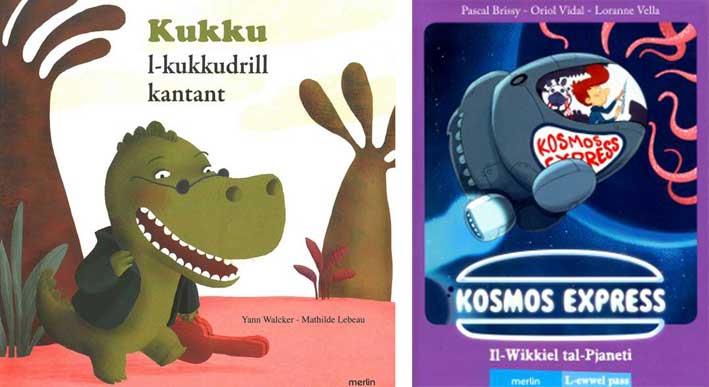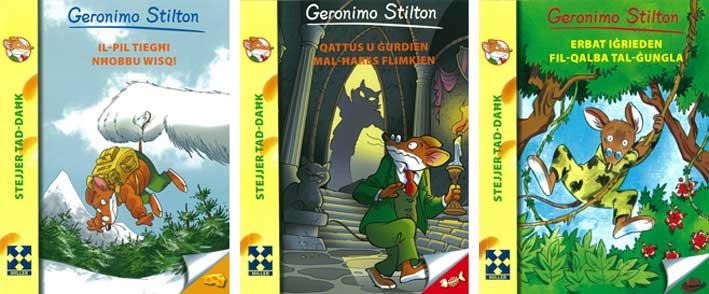"Social and human-rights themes should be promoted with children from a very young age. Yet, traditional fairytales, which we take for granted, might portray themes which promote the opposite - including gender and social inequality, racism, homophobia and xenophobia," says Ruth Frendo, a member of the NGO Write Deal.
A couple of weeks ago, local media reported that three popular fairy tales - The Emperor's New Clothes, Sleeping Beauty and The Princess and the Pea - have been reinterpreted in the Maltese language and produced as cartoons, but with a difference. The retelling of The Emperor's New Clothes emphasises that no one should be judged on the basis of their national or ethnic origin, while the reinterpretation of Sleeping Beauty seeks to emphasise gender equality, promoting the message that one's gender should not be an obstacle to achieving one's goals. The cartoons will be screened as previews before the start of films at local cinemas during the Easter period, and will also be distributed in all Maltese schools.
This project was carried out by the NGO Write Deal, in collaboration with the National Council of the Maltese Language, and Ruth Frendo was appointed as project coordinator. "The aim of this exciting project is three-fold - promoting vital issues, providing an opportunity for local artists and producing cartoons in our mother language," Ruth says, in comments to The Malta Independent on Sunday.

"I was brought up with the mentality that, as long as I work hard, I can achieve whatever I dream of. It always appeared strange to me that princesses portrayed in the cartoons I loved so much were always so fragile, helpless and in distress. Although I could not articulate this feeling, I always knew that there was something very wrong. Then growing up, I realised that a number of female friends of my age still believe that a 'prince in shining armour' will come and 'save' them, when I knew that my friends had the potential of saving themselves. The roots of such mentality could well be the result of the stories we are exposed to from a young age," she continues.
"Unfortunately, there are children in our schools who are unable to communicate in our national language. Unless we do something about this, the Maltese language is at risk of dying out in a couple of generations.
"The ability to be able to watch professional and high-quality cartoons in Maltese is an important step towards protecting our beautiful and rich language. A good number of middle-aged people are able to communicate in Italian because they were exposed to Italian cartoons from a young age. Younger people are less able to understand Italian because they were mostly exposed to cartoons in English. In the same manner, cartoons in Maltese might help safeguard the language."
The association Write Deal aims to promote significant social and environmental issues while promoting and helping local artists. It is currently looking for sponsors to produce their fourth cartoon - Beauty and the Beast. It is also collaborating with six other EU partners to produce a documentary about refugee status around Europe.
In a separate project, young people with behavioural and social difficulties, and those who are less able, will be able to take part in a short, professional film that will shed light on the repercussions of cyber-bullying and hate speech.

Geronimo Stilton adventure books in Maltese
Just before Christmas, local publishers Miller published six Geronimo Stilton adventure books in the national language. All the books in the series are aimed at readers aged between six and 12. They are narrated by the main character, Geronimo Stilton, a mouse living in New Mouse City who is the editor and publisher of the city's most widely read newspaper and the author of a number of adventure novels.
The books, which were originally written in Italian by Elisabetta Dami, have so far been translated into more than 35 languages. The franchise has grown to more than 58 books in the original adventure series, with an additional 32 books and 18 graphic novels in a variety of genres. The Maltese series has been a great hit with local children.
The books have been translated by Professor Charles Briffa. " In translating the Stilton books, I experienced in writing how pliant Maltese was because Geronimo Stilton gave me the opportunity to use creatively words like ġrejden, famaws, ċuċu and to coin phrases such as 'moħħ ta' ġobon', 'il-far abominabbli tas-snow', 'wiċċ ta ċedar'," he says, in comments to The Malta Independent on Sunday.
"It's a context that demands expressive language like 'ħaqq l-imsaren imdellka ta' qattus' and 'ġismi ġurdni jqum xewk xewk'. Even from these few examples, one can see the pliability of the Maltese language as translation played with Semitic possibilities as found in terms like the diminutive ġrejden and the adjective ġurdni, which formed a semantic relationship with the distinctions made in the text between ġurdien, far, and gerriem. This pliability also includes experimenting with non-Semitic elements (famaws, ċuċu) and using borrowed terms (tas-snow, ċedar, abominabbli) for the best effects possible - and all for the sake of equivalence and faithfulness to the original. Elisabetta Dami, the original author, treats her young readers as adults, and the translation follows suit," he says.
"The innovative use of colloquial Maltese in the translated Stilton books is intended to shape the dynamics of discourse and children's attitudes towards their mother tongue and it is within this design that the Stilton translations have to function. Narratives are fertile ground for this, and children are active interpreters of their social environment as they can judge the content of their reading in terms of the type of language employed to convey that content."
Merlin provides first step for independent readers
A few weeks ago, Merlin Publishers launched a series of six books, spread across three levels, for independent readers. The first level in the series, aimed at children aged 7+, is L-ewwel pass and the two books in this level are Se jkolli ħija żgħir? Le grazzi! and Kosmos Express: Il-Wikkiel tal-Pjaneti.
These books, which were originally written in French and are bestsellers in their native country, have now been translated into Maltese by Loranne Vella. Se jkolli ħija żgħir? Le grazzi! is the story of a girl who has just learnt that her parents are expecting a baby - and she is definitely not happy about this! Suddenly, everyone's attention is on the new baby. When her new brother, Teo, is born, she does not take kindly to this addition, especially as relatives and neighbours flock to see him and generally ignore her.
The second book, Kosmos Express: Il-Wikkiel tal-Pjaneti, is an exciting space adventure, taking the reader to galaxies far, far away where a space restaurant is doing a great trade making home deliveries of yummy space food to different planets. Tim and Bibop, his dog-robot, are on one of their many delivery trips when they find themselves face to face with a space monster.
Following Merlin's publication of L-ewwel pass, the series has two other levels for more advanced readers: Pass pass and Pass ta' ġgant.
Meanwhile, the publishers have also published four new books in Maltese that are targeted at younger readers. These are Lupu Lupettu Kull Kulur, Kokku l-kukkudrill kantant, Rosetta Banana Tinten jew Tfuh? and Serafin il-Princep-Denfil. The themes across the four books include self-confidence, acceptance of those who are different from you, colours, days of the week, humility and friendship and personal hygiene.